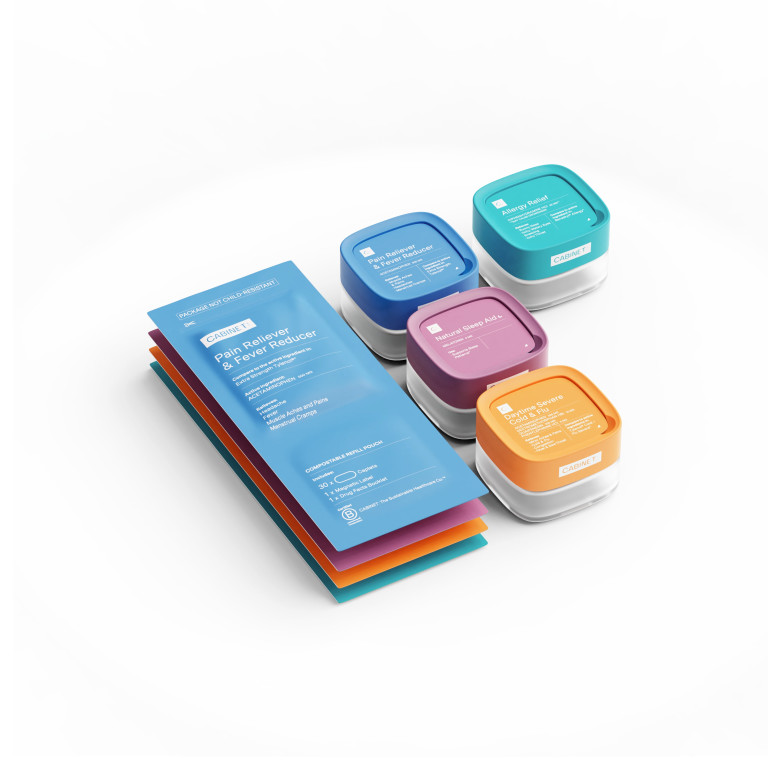Types of allergy medicines
1. Antihistamines
Antihistamines are the most common type of allergy medication and are available both OTC and with a prescription. They work by blocking the action of histamine, a chemical that is released by the body during an allergic reaction. This can help reduce symptoms such as sneezing, itching, and watery eyes.
There are two main types of antihistamines: sedating (1st generation antihistamines) and non-sedating (2nd generation antihistamines). Sedating antihistamines are older and can cause drowsiness. These drugs are often used to help people with allergies sleep at night. Non-sedating antihistamines don't cause drowsiness and are often used to relieve allergy symptoms during the day.
Examples of OTC antihistamines include:
Loratadine (Claritin)
Cetirizine (Zyrtec)
Fexofenadine (Allegra)
Prescription antihistamines include:
Levocetirizine (Xyzal)
Desloratadine (Clarinex)
2. Decongestants
Decongestants are another type of allergy medication that can help relieve symptoms like stuffy nose and sinus pressure. Decongestants work by narrowing the blood vessels in the lining of the nose, helping to reduce swelling and congestion. Decongestants can be purchased over-the-counter and they can come as tablets or nasal sprays.
Nasal decongestant sprays can cause rebound congestion, or worsening of congestion with continued use. Research suggests that rebound congestion can start after three days of using a decongestant nasal spray.
Examples of OTC decongestants include:
Pseudoephedrine (Sudafed)
Phenylephrine (Sudafed PE)
Oxymetazoline nasal spray (Afrin)
Xylometazoline (Otrivin)
3. Nasal corticosteroids
Nasal corticosteroid are commonly used to reduce inflammation and swelling in the nasal passages. They're usually taken as a nasal spray and can be effective at relieving symptoms such as a stuffy nose, sneezing, and sinus congestion. Nasal corticosteroids are available OTC and with a prescription. Unlike some decongestants, these sprays can generally be used long-term.
Examples of nasal corticosteroids include:
Fluticasone (Flonase)
Triamcinolone (Nasacort)
Mometasone (Nasonex)
Beclomethasone (Beconase)
4. Leukotriene receptor antagonists
Leukotriene receptor antagonists (LTRAs) are a type of allergy medication that works by blocking the action of leukotrienes, chemicals that are involved in the body's immune response to allergies. LTRAs can be effective at relieving symptoms such as sneezing, runny nose, and nasal congestion. They're available with a prescription and come as tablets or oral granules.
Examples of LTRAs include:
Montelukast (Singulair)
Zafirlukast (Accolate)
5. Allergy shots (allergen immunotherapy)
Allergy shots, also known as allergen immunotherapy, are a type of treatment that can help reduce the severity of allergy symptoms and improve quality of life for people with allergies.
Anti-Allergy Meds Without the Plastic Waste & Clutter
We at Cabinet Health believe you shouldn’t have to compromise between your health and the health of the planet. Our anti-allergy meds manage to marry sustainability with lab-tested results, all packaged in eye-pleasing glass containers that prove eco-friendly doesn’t have to mean eye sore. By removing single-use plastic from medicine packaging and batch-level testing all of our medicines for safety, we are tackling sustainability in an industry that’s yet to address it. So stop sneezing and know you’re doing the right thing with Cabinet’s anti-allergy medicines.










